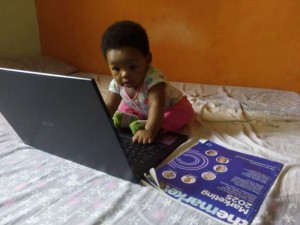From stolen property to trashed apartments, what renters can do to protect themselves. This video ends showing a man who earns a good income with his Airbnb listings.
Author: Ramon Thomas
-
Sugata Mitra: Leave Kids Alone
Mark Twain famously said that schooling should not be allowed to interfere with education and a number of people have tried to put this idea into practice. And yet secondary education in the way it’s structured and imparted hasn’t changed much since the 19th century. Does “old school” deserve the regard and respect we attach to this term? To discuss this, Oksana Boyko is joined by prominent Indian educator, Prof Sugata Mitra.
-
Lesley Keast – School in the Cloud
Lesley Keast talks to TEDxKazimierz about the School in the Cloud and how every Sunday morning she goes on a journey to India where she interacts with school kids as a Skype Granny.
Lesley Keast is the Diploma Course Leader for the British Council in Madrid and has also taught Universidad de Alcalá’s MA TESOL course since 2007. She presented her own MA research at IATEFL Harrogate in 2014. She has taught in Spain, Portugal, Italy and Hungary and was the Director of Studies of a progressive international school in the UK.
This talk was given at a TEDx event using the TED conference format but independently organized by a local community
-
South Africa celebrates Wikipedia 15 this week
[Johannesburg, South Africa] This week Wikipedia, the world’s largest encyclopedia turns 15 years old. South African editors and contributors will meet in Johannesburg and Cape Town to join a global series of events led by the Wikimedia Foundation.
In South Africa, Wikimedia ZA and NETucation, a leading Internet safety training company, have combined their resources to organise an edit-a-thon event in Johannesburg on Saturday, January 16th and in picnic in Cape Town on Friday, January 15th.
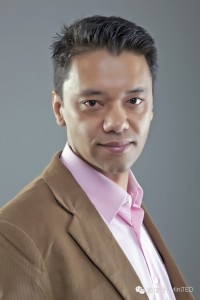
“Wikipedia is not only valuable because of the free information it provides, it also allows South Africans to tell our stories to the world,” says Ramon Thomas, founder of NETucation, who first used the Internet in 1993 in Port Elizabeth. “The most valuable contributions I’ve made is to expand articles about people and places I know very well across South Africa.” Since 2006 he started to edit in English and Afrikaans Wikipedia.
Before 2001, an encyclopedia would cost thousands of Rands, trees, water and ink, and it was really really hard to carry around. Today Wikipedia provides millions of referenced articles, photos, illustrations, sources, and word definitions right at your fingertips. The volunteers who have been creating this amazing work for 15 years don’t charge anything for it. They want to share all the world’s knowledge with every person alive today.
“I discovered that if I don’t edit, no one will edit,” says Bobby Shabangu, a member of the Wikimedia ZA board of directors. “I wanted to activate people into talking about Wikipedia and the work they do and everything…that’s actually how I got involved with the whole thing.” Since late 2012, he began to edit both the Swati and English Wikipedia.
Event Details:
Cape Town
Johannesburg
Venue: De Waal Park, Oranjezicht
Date: Friday, January 15
Time: 16:00 to 19:00Venue: Nino’s Rosebank, The Zone>
Date: Saturday, January 16
Time: 09h00 to 12h00RSVP: http://bit.ly/WikipediaZA15
— ENDS —
Media Contacts:
Wikimedia ZA
NETucation
Bobby Shabangu
Mobile: +27720679 593
Email bobbyshabangu@gmail.com
Website: www.wikimedia.org.za
Ramon J. Thomas
Mobile: +27814399555
Email: r@netucation.co.za
Website: www.netucation.co.za
About Wikimedia ZA
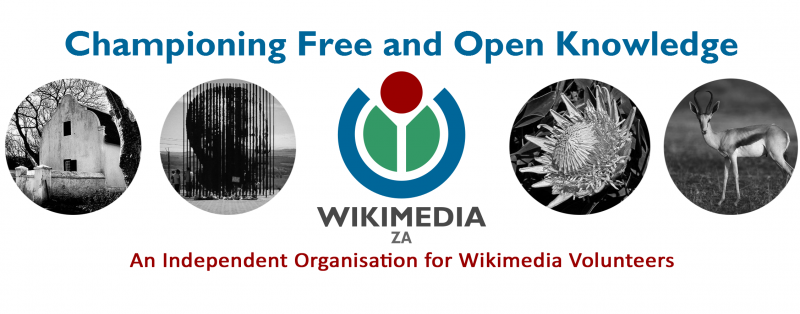
The WikiProject South Africa is a collaborative effort to improve coverage on South Africa and the organisation of information and articles on this topic. This WikiProject is part of the WikiProject Africa and aims primarily to help coordinate and improve pages on South Africa, History of South Africa and South Africans. Wikimedia ZA, is national not-for-profit, created to promote the interests of Wikimedia projects within South Africa.
About NETucation
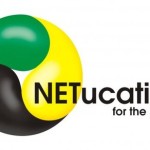
NETucation provides training on how to be smart and safe, online. We empower teenagers, teachers, parents and professionals for the Internet age. Since 2004 we have delivered over 500 seminars and workshops to Michaelhouse, St Alban’s College, St Mary’s DSG, the Crawford and Curro Schools, etc. We also participate in government and public forums with the Film & Publications Board and Childline South Africa; while publishing ebook like the “Parent’s Guide to MXit” and “Privacy is Possible.”
-
Multiplier Mindset 14 – What You Can Learn From Failure
Dan Sullivan notes that successful entrepreneurs have a certain mindset around their experiences in life that greatly contributes to their success and happiness. They see every experience in life either as a win or as learning.
source: Strategic Coach
-
Shining a light on education
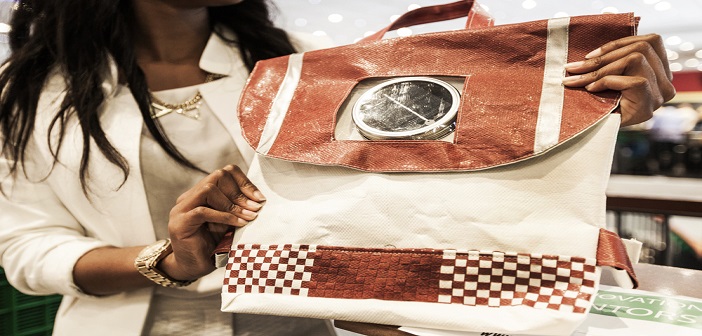 The Italian physician and educator, Maria Montessori, famously once said: “Our care of the child should be governed, not by the desire to make him learn things, but by the endeavour always to keep burning within him that light which is called intelligence”; and now two girls are helping to ensure that this light continues to burn for school children across South Africa with a rather innovative concept…Leaving school and walking home is so often fraught with danger every day for thousands of school children across Africa. Travelling along busy roads with little to no light only to get home and attempt to complete their homework under similar lighting conditions has long proved a challenging issue with long term societal impacts.Now two school friends turned business partners are looking to change all this, helping to provide for underprivileged communities through an innovative and environmentally friendly concept – the repurpose schoolbag.
The Italian physician and educator, Maria Montessori, famously once said: “Our care of the child should be governed, not by the desire to make him learn things, but by the endeavour always to keep burning within him that light which is called intelligence”; and now two girls are helping to ensure that this light continues to burn for school children across South Africa with a rather innovative concept…Leaving school and walking home is so often fraught with danger every day for thousands of school children across Africa. Travelling along busy roads with little to no light only to get home and attempt to complete their homework under similar lighting conditions has long proved a challenging issue with long term societal impacts.Now two school friends turned business partners are looking to change all this, helping to provide for underprivileged communities through an innovative and environmentally friendly concept – the repurpose schoolbag.
The first green initiative from founding company Rethaka, set up by Thato Kgatlhanye and Rea Ngwane, the pair, now 22, are taking full advantage of the overflowing plastic waste in their region and neighbouring communities to upcycle it into 100% recycled plastic schoolbags for local disadvantaged school children.
Not only are the bags made from recycled materials, helping with the environmental issue in the country, but it doubles as a light and features reflective materials, providing a safety aspect so the children are more visible walking home in rush hour traffic.
With a solar panel positioned in the flap of the bag, charging as the children walk to school, it subsequently allows sufficient light walking home and enough to finish their homework in the evenings. Many households have to rely on candle light after dusk, but these are often rationed, so the school bag will also impact positively on family life too.
“One of the first obstacles these kids face if not being able to finish their homework. If a child doesn’t have access to light then as soon as the sun goes down there is not time to do anything but sleep,” Co-founder, Thato Kgatlhanye, explains.
The two girls carried out a 6-month trial period at the beginning of last year, distributing the recycled bags to schools across the Rustenburg region, and producing 1,000 bags from the period August to December.
Each bag currently costs R250 (US$20) to manufacture, which helps to cover both the production and employee costs. Producing up to 20 bags a day in its workshop, the company presently employs eight full time workers, with the girls hoping to increase this to 12 by the end of the year to help meet its target to produce 10,000 bags this year alone.
Helping to distribute these upcycled school bags to children, the company has targeted and teamed up with local individuals to achieve funding and corporate social investment in a bid to sponsor the production of each bag, ensuring the process remains sustainable with plenty of room to grow and expand into surrounding African communities.
Of course, it is not always easy to start and run a business, especially at the age the girls are and with a subject so integral and prominent to the region. Challenges have arisen along the way, particularly with the lack of infrastructure for plastic recycling but a quick solution was to simply create this themselves which has resulted in a positive and sustainable outcome.
The children have been encouraged to collect and bring in the plastics themselves and feel involved in the whole process from the very beginning to the end.
“The plastic comes to our workshop where we process them into a textile, sew it up with industrial sewing machines and then we distribute,” Kgatlhanye explains.
The concept of recycling and upcycling, although a foreign concept to so many children in the region, has helped to generate interest and knowledge. “Kids are picking up litter around the community,” explains Kgatlhanye.
With distribution underway, the recycled school bag is really a testament to both Thato and Rea and their evident entrepreneurial skills and flair for innovation, even from such a young age. Now clear role models for the children they are helping to provide support to, Thato Kgatlhanye has been recognised for her business ventures; selected for an internship in New York to work alongside the American best-selling author, Seth Godin and in 2014, she was selected as one of the 18 South African social entrepreneurs to attend the 10-day Red Bull Amaphiko Academy.
Perhaps most impressively though, Kgatlhanye was selected as the 2014 first runner-up of the Anzisha Prize, winning $15,000 in prize money.
In an online Q&A session held earlier this year on the Anzisha Prize’s Facebook page, Kgatlhanye explained: “My advice is simple: bootstrap and find competitors to enter your business idea into. Firstly it is a great way to get free business support and advice. Secondly, it’s a great networking opportunity to meet high-profile business people – who usually judge these competitions – and potentially get mentorship from them. Finally, if you end up a winner, you will not only get a cash prize but also get some PR out of it.
“Get a business coach, be honest, leave the ego at the door and hustle,” she concluded.
Looking to the future for this young company and both girls hope to develop further products using 100% recycled materials, including different bag designs and raincoats. With major clients including PwC and Standard Bank already on-board, venturing into other communities is assuredly something we will be seeing in the not so distant future for Rethaka and its ingenious school bag concept.
-
Logic and illogic in education
This week’s guest blog is by Jon Rappoport. I’ve engaged with Jon Rappoport since 2012 and studied his material on imagination. I’m confident this course in logic is worth the investment.
In two of my collections, The Matrix Revealed and Power Outside The Matrix, I include training in the art of logic and critical analysis.
The basic fact is: students in schools are rarely taught how to follow a line of reasoning from beginning to end. Nor do they practice analyzing half-formed, specious reasoning.
Who teaches young students, these days, how to distinguish between a polemic and a formal argument?
Teachers spend little or no time discussing hidden premises or assumptions, which color subsequent arguments.
Increasingly, people are “learning” from watching videos. Some videos are well done; many others intentionally omit vital data and make inferences based on “shocking images.”
A focused study of logic can illuminate a range of subjects and disciplines. It can suddenly bring perspective to fields of inquiry that were formerly mysterious and impenetrable.
Logic is the parent of knowledge. It contains the principles and methods common to all investigation.
Being able to spot and understand logical flaws and fallacies embedded in an article, essay, book immediately lifts the intelligence level.
Logic isn’t a prison; one isn’t forced to obey its rules. But the ability to deploy it, versus not understanding what it is, is like the difference between randomly hammering at a keyboard and typing coherent paragraphs. It’s the difference between, “I agree with what he’s writing,” and “I know exactly how he’s making his argument.”
In the West, the tradition of logic was codified by Aristotle. Before him, Plato, in the Socratic Dialogues, employed it to confound Socrates’ opponents.
Reading the Dialogues today, one can see, transparently, where Plato’s Socrates made questionable assumptions, which he then successfully foisted on those opponents. It’s quite instructive to go back and chart Socrates’ clever steps. You see logic and illogic at work.
High schools today don’t teach logic for two reasons. The teachers don’t understand the subject, and logic as a separate discipline has been deleted because students, armed with it, would become authentically independent. The goal of education rejects independent minds, despite assurances to the contrary.
Logic and critical analysis should be taught in phases, with each phase encompassing more complex passages of text offered for scrutiny.
Eventually, students would delve into thorny circumstantial arguments, which make up a great deal of modern investigation and research, and which need to be assessed on the basis of degrees of probable validity and truth.
It’s like a climbing a mountain. The lower paths are relatively easy, if the map is clear. At higher elevation, more elements come into play, and a greater degree of skill and experience is required.
My college logic teacher introduced his subject to the class this way: Once you’ve finished this semester, you’ll know when you know, and you’ll know when you don’t know.
The second part of his statement has great value. It enables real research beyond egotistical concerns, beyond self-serving presumptions, beyond secretly assuming what you’re pretending to prove.
-
Stop Stealing Dreams
STOP STEALING DREAMS: On the future of education & what we can do about it. Seth Godin unravels the reason why we have school, and asks the question, “What is school for today?” in the post-factory world.
Seth Godin is the author of 14 books that have been bestsellers around the world and have been translated into more than 35 languages. Permission Marketing was a New York Times bestseller, Unleashing the Ideavirus is the most popular ebook every published, and Purple Cow is the bestselling marketing book of the decade. His free ebook on what education is for is called STOP STEALING DREAMS and it’s been downloaded millions of times since it launched in January, 2012.
In addition to his writing and speaking, Seth is founder of squidoo.com, a fast growing, easy to use website. His blog (which you can find by typing “seth” into Google) is one of the most popular in the world.
-
Seth Godin on Education Reform
Seth Godin interviewed by Graham Brown-Martin about education reform. After watching this I’m confident Seth Godin has read the books of John Taylor Gatto, author of Underground History of (American) Education.
